
1 BREWING MAY HAVE BEEN A FEATURE OF NEOLITHIC SOCIETIES
One of the earliest pieces of evidence regarding the drinking of alcohol dates back approximately 13,000 years, to the Raqefet Caves in Israel's Carmel mountains, where archaeologists uncovered residues of a beer-like substance in 2018. The ancient brew, resembling gruel in texture, was possibly utilised by the semi-nomadic Natufian people for ceremonial feasting. Further north, similar evidence suggests that a type of beer production may have also occurred at Göbekli Tepe in Turkey during the pre-pottery Neolithic period, spanning roughly 8500 BC-5500 BC.
But for drinkers curious about the genealogy of the beverages they enjoy today, the earliest chemical evidence of beer crafted using barley stems from the Godin Tepe site in the Zagros Mountains of western Iran. This important find, dating from approximately 3500 BC-3100 BC, could be considered a forefather of modern beers.
Based on these examples, archaeologists argue that the Near East served as a crucible for the invention and production of alcoholic drinks. But it seems that it wasn't just beer our ancestors enjoyed. In the 1990s, archaeologists working at the Hajji Firuz Tepe site in Iran, which dates to around 5400 BC-5000 BC, unearthed sediment deposits at the base of an amphora (storage jar) containing tannin and tartrate crystals a possible indication of wine production.
An even earlier tale unfolds in China. Residues discovered on pottery fragments from the Neolithic Jiahu sites, which have been radiocarbon-dated to c7000 BC-6600 BC, point to the consumption of fermented rice, honey and fruit. This would place China at the forefront of ancient wine production, long preceding developments witnessed in Europe.
2 MEDIEVAL PEOPLE DRANK ALL DAY
Denne historien er fra September 2023-utgaven av BBC History Revealed.
Start din 7-dagers gratis prøveperiode på Magzter GOLD for å få tilgang til tusenvis av utvalgte premiumhistorier og 9000+ magasiner og aviser.
Allerede abonnent ? Logg på
Denne historien er fra September 2023-utgaven av BBC History Revealed.
Start din 7-dagers gratis prøveperiode på Magzter GOLD for å få tilgang til tusenvis av utvalgte premiumhistorier og 9000+ magasiner og aviser.
Allerede abonnent? Logg på
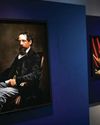
'Dickens's evocation of the fears, excitement and confusion of childhood is peerless'
DR LEE JACKSON ON WHY CHARLES DICKENS REMAINS RELEVANT TODAY
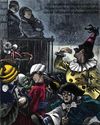
THE AUTHOR GOES ABROAD
Dickens expanded his horizons and boosted his fan-base by venturing overseas - but global fame came with a cost
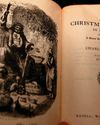
REVIVING THE FESTIVE SPIRIT
A Christmas Carol wasn't just a bestseller - it changed the way that Britons chose to mark the festive season
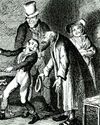
GIVING THE POOR A VOICE
From Hard Times to Oliver Twist, Charles Dickens used his pen to help illuminate the lives of the less fortunate
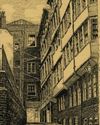
A JOURNEY THROUGH DICKENS'S LONDON
The works of Charles Dickens are synonymous with visions of Victorian London. We talk to Dr Lee Jackson about the author's love of the capital, and the locations that most inspired him
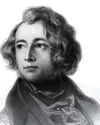
EXCEEDING EXPECTATIONS
Dr Lee Jackson chronicles Charles Dickens's journey from down-at-luck teenager to titan of Victorian literature
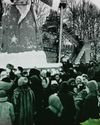
GIFTS, TREES & FEASTING
We take a journey through the photo archives to reveal how Christmas and its many traditions have been celebrated over the years - and around the world
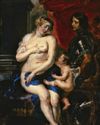
WHAT GREAT PAINTINGS SAY
We explore the story behind an allegorical painting that celebrates the triumph of love over hate, peace over war
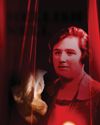
HELLISH NELL
Malcolm Gaskill delves into the life of Helen Duncan - the fraudulent Scottish medium whose ectoplasm-filled seances saw her ending up on the wrong side of the law
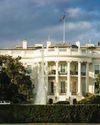
7 THINGS YOU (PROBABLY) DIDN'T KNOW ABOUT THE WHITE HOUSE
Presidential historian Dr Lindsay M Chervinsky reveals some of the most surprising facts about the world-famous US residence